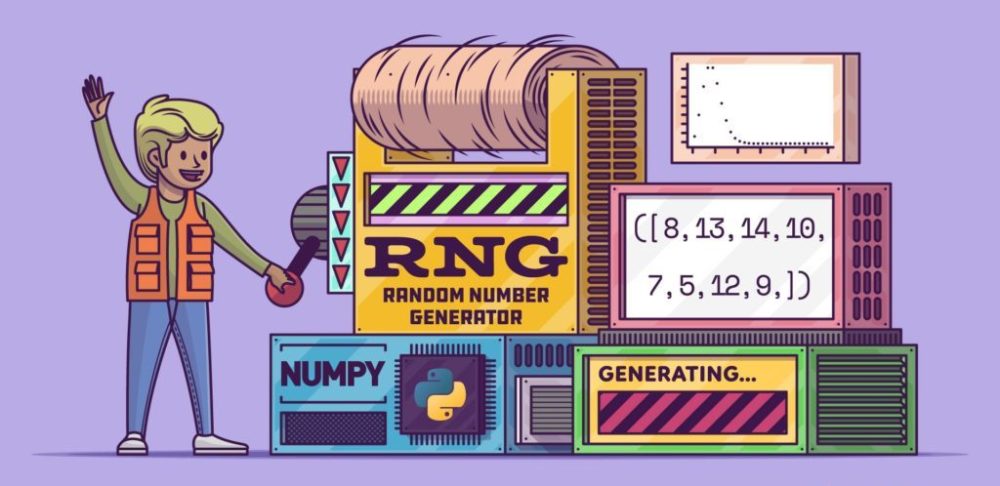Online gambling is based on confidence in the impartiality of gaming processes. However, for many market participants, the difference between RNG and RTP, two key parameters that form trust and transparency, is still not obvious.
Understanding the mechanisms allows for an objective assessment of the behavior of slots and other gambling games, separating real mathematical patterns from illusions of control over the outcome.
What are RNG and RPT: the essence of these terms in the context of gambling
A random number generator is the core of any modern slot machine, roulette, or online card game. It generates every number that appears, every spin, and every card deal. The main characteristic of a random number generator is its complete randomness, which is based on numerical sequences that cannot be predicted. A random number generator does not depend on past results, does not “remember” bets, and cannot be intentionally manipulated in accordance with certification standards.

The return to player percentage, known as RTP in the industry, is a mathematically calculated value that indicates the theoretical percentage of all bets that are returned to players as winnings. For example, a 96% return rate means that, over time, out of every 100 bets placed, 96 will be distributed back to players.
Therefore, the difference between RNG and RTP lies in their opposite functions: RNG is responsible for randomization, while RTP is responsible for mathematical balancing.
Why are RNG and RTP confused: the main misconceptions
 One of the common misconceptions is the perception of the return level as a guaranteed return within a single gaming session. The participants are confident that the payout percentage works immediately and without deviations. However, the difference between RNG and RTP highlights the impossibility of forecasting in the short term.
One of the common misconceptions is the perception of the return level as a guaranteed return within a single gaming session. The participants are confident that the payout percentage works immediately and without deviations. However, the difference between RNG and RTP highlights the impossibility of forecasting in the short term.
In addition, users mistakenly attribute the RNG to the “ability” to control the result depending on the player’s behavior. Such ideas are fueled by the lack of a transparent understanding of algorithms, as well as the presence of visual effects that create the illusion of dependence on user actions.
What is the difference between RNG and RTP in online casinos: how is anti-manipulation protection built in?
Systems that provide RNG and RTP in online casinos are developed by providers and undergo mandatory certification. Independent laboratories verify whether the randomness algorithm meets international standards and whether the mathematical model for awarding winnings accurately reflects the declared return rate.
It is important to note that the casino operator does not have access to the software’s source code. The software is fixed at the time of signing the contract between the provider and the platform. Even minor modifications require re-auditing. This approach ensures maximum integrity and security, limiting any human influence.
Where does the mathematical model work: specific examples
The algorithmic structure of slot games is based on the principles of probabilistic analysis. Each symbol has a predetermined frequency of appearance, and combinations have a calculated mathematical probability. The difference between RNG and RTP is clear: RNG determines the moment of выпадения, while the payout model determines the size and frequency of wins over the long run.
In card games such as poker or blackjack, RNG replaces the physical deck. The deck is shuffled after each round, eliminating predictability. The payout percentage for a player depends not only on luck, but also on tactics.

Roulette is another good example. The rotation of the wheel is visually controlled, but the result is always predetermined by the RNG. The return of bets depends on the type of bets and the coefficients included in the mathematical model.
Signs of Legitimacy: How to Distinguish an Honest Platform?
Before launching the platform, the provider must provide documentary evidence that the RNG system and the return rate meet the established standards. The transparency assessment begins with official information:
- availability of a license from regulators (MGA, UKGC, Curaçao, etc.);
- access to public reports on RNG certification;
- verified providers (NetEnt, Microgaming, Evolution, and others);
- participation in international self-regulation programs (e.g., eCOGRA).
Against this backdrop, the key difference between RNG and RTP becomes clear: one parameter provides the result, while the other determines its long-term financial proportion. Neither can function properly without the other.
The influence of the provider and the operator: areas of responsibility
The formation of an honest environment is impossible without a clear division of roles. The provider is responsible for developing mathematical and software algorithms, while the operator is responsible for implementing the interface, marketing, and user experience. The platform, as a rule, does not interfere with the work of the kernel.
The difference between RNG and RTP here is that the algorithm is responsible for the first metric, and the return formula based on statistics is responsible for the second. The provider’s task is to maintain a balance between excitement and logic, while the operator’s task is to comply with the terms of the license and technical support.
When does math become a trap?
Despite the fact that the technical part is strictly controlled, the player’s behavior is often subject to cognitive distortions. Partial returns are perceived as a sign of “luck,” while rare large winnings are seen as a pattern. In practice, the difference between RNG and RTP highlights the impossibility of controlling the outcome through intuition.
The gameplay is based on mathematics, but misinterpreting its mechanisms can turn a predictable system into a trap for the unprepared mind.
The Difference Between GSL and RTP: Key Takeaways
 Thus, the difference between RNG and RTP boils down to the key distinction between momentary randomness and long-term probability. The former is responsible for the unpredictability of outcomes, while the latter ensures the balance of payouts over a large number of sessions. Understanding this distinction not only enhances trust in the gambling platform but also minimizes the impact of emotional decisions. With proper licensing, certification, and transparent algorithms, gambling can truly be an honest mechanism rather than a mathematical trap!
Thus, the difference between RNG and RTP boils down to the key distinction between momentary randomness and long-term probability. The former is responsible for the unpredictability of outcomes, while the latter ensures the balance of payouts over a large number of sessions. Understanding this distinction not only enhances trust in the gambling platform but also minimizes the impact of emotional decisions. With proper licensing, certification, and transparent algorithms, gambling can truly be an honest mechanism rather than a mathematical trap!
 en
en  de
de  ar
ar  es
es  hi
hi  nl
nl  fr
fr  it
it  pt
pt  el
el 









